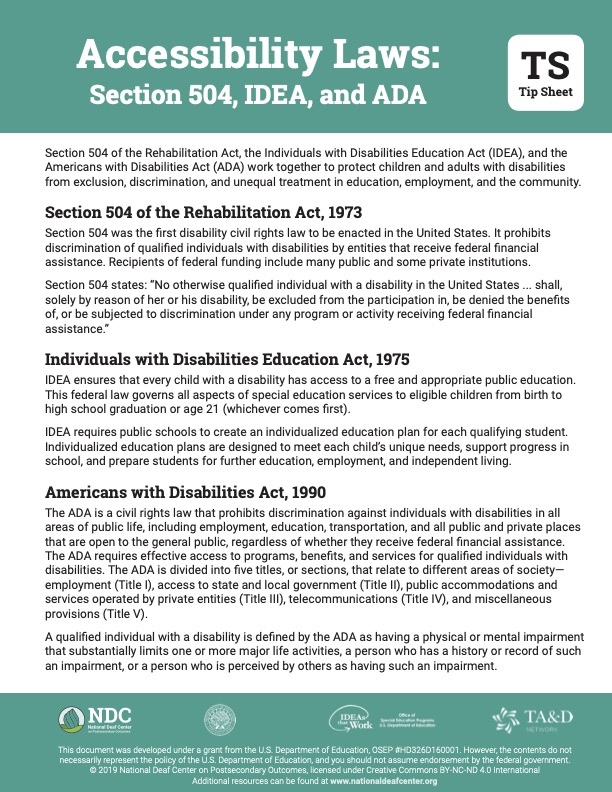Section 504 of the Rehabilitation Act, the Individuals with Disabilities Education Act (IDEA), and the Americans with Disabilities Act (ADA) work together to protect children and adults with disabilities from exclusion, discrimination, and unequal treatment in education, employment, and the community.
Section 504 of the Rehabilitation Act, 1973
Section 504 was the first disability civil rights law to be enacted in the United States. It prohibits discrimination of qualified people with disabilities by entities that receive federal financial assistance. Recipients of federal funding include many public and some private institutions.
Section 504 states: “No otherwise qualified individual with a disability in the United States … shall, solely by reason of her or his disability, be excluded from the participation in, be denied the benefits of, or be subjected to discrimination under any program or activity receiving federal financial assistance.”
Individuals with Disabilities Education Act, 1975
IDEA ensures that every child with a disability has access to a free and appropriate public education. This federal law governs all aspects of special education services to eligible children from birth to high school graduation or age 21 (whichever comes first).
IDEA requires public schools to create an individualized education plan for each qualifying student. Individualized education plans are designed to meet each child’s unique needs, support progress in school, and prepare students for further education, employment, and independent living.
Americans with Disabilities Act, 1990
The ADA is a civil rights law that prohibits discrimination against people with disabilities in all areas of public life, including employment, education, transportation, and all public and private places that are open to the general public, regardless of whether they receive federal financial assistance.
The ADA requires effective access to programs, benefits, and services for qualified people with disabilities. The ADA is divided into five titles, or sections, that relate to different areas of society— employment (Title I), access to state and local government (Title II), public accommodations and services operated by private entities (Title III), telecommunications (Title IV), and miscellaneous provisions (Title V).
A qualified individual with a disability is defined by the ADA as having a physical or mental impairment that substantially limits one or more major life activities, a person who has a history or record of such an impairment, or a person who is perceived by others as having such an impairment.






